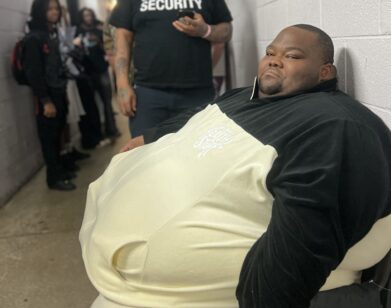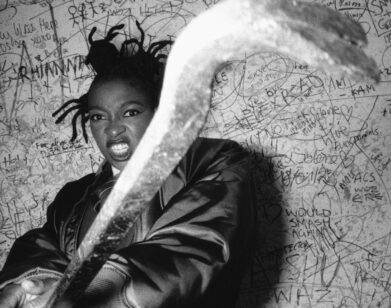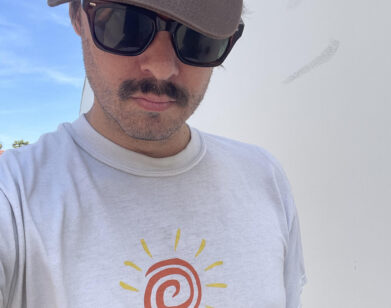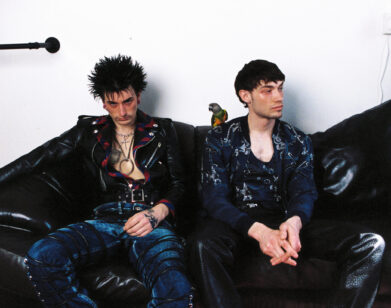Popstrangers Dabble in Pop
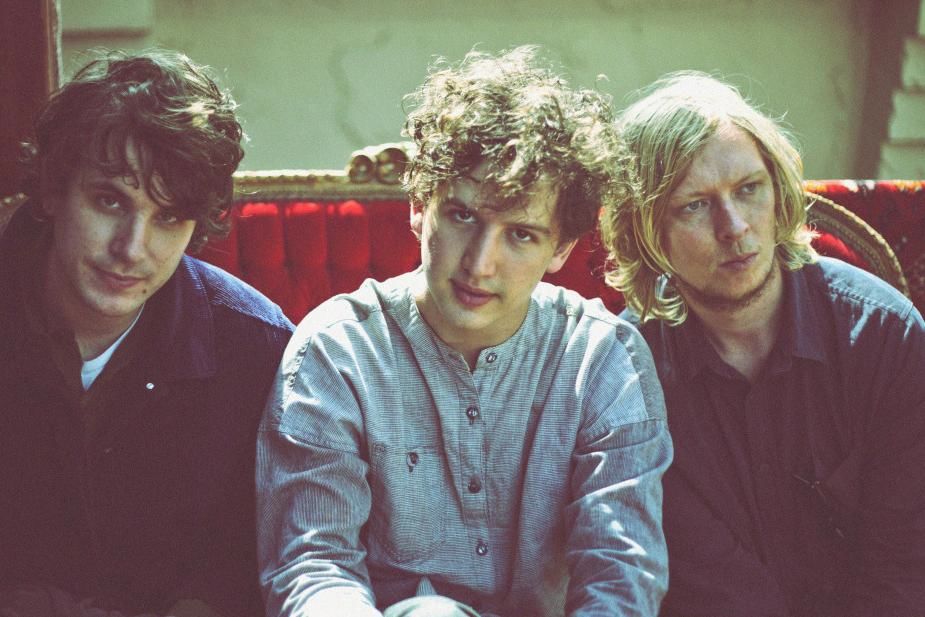
ABOVE: POPSTRANGERS
An upstart New Zealand rock band, Popstranger will release their debut album Antipodes through Carpark Records at the end of the month. And, like fellow Australasian imports Tame Impala and Unknown Mortal Orchestra, Popstrangers have traveled quicker in the digital space than in the physical one. Their lead singles “What Else Could They Do” and “Heaven” made the blog rounds at the end of last year before their sophomore trip to the CMJ Music Marathon in New York.
We had a chance to catch up with two Popstrangers in their native habitat. Lead singer and guitarist Joel Flyger and drummer David Larson were kind enough to invite us up to their studio space in Auckland for a beer and conversation.
JARED LEVY: You were in the US in October for CMJ. How did that go?
JOEL FLYGER: It was good. We went the year before, but it was a lot better this time, because we had a label and we were playing better shows with more people coming to them. It felt like a real trip—to play shows —instead of a holiday.
LEVY: Was there any memorable show: good or bad?
DAVID LARSON: The Carpark showcase was probably the most memorable.
FLYGER: I remember thinking at the time that it was the best show we played. The venue was really cool: The Cameo Gallery. It’s got this awesome kind of chandelier that’s made out of straw.
LEVY: When do you think you started to break out of New Zealand?
LARSON: I guess around the release of the single, “What Else Could They Do.” Just before CMJ, it started to get a little attention overseas.
FLYGER: We got a bit of attention through Flying Nun. That made us able to contact labels overseas, so we got in touch with Capark. I mean, we had ambitions to go overseas and play, so it just seemed like the next logical step: to continue as a band. We didn’t want it to get boring. You’ve got to go other places.
LEVY: Was that always the plan for you?
LARSON: That was always the idea.
FLYGER: Well, I don’t want to be in Auckland for the rest of my life. You’ve got to go overseas at some point.
LARSON: I don’t think any of us want to be in a band just so we could stay in the country. Just play in the local pub.
LEVY: I’m curious about how you created Antipodes. What was the songwriting process? Are these songs that you’ve been kicking around for a while?
FLYGER: It was songs we had. We recorded more songs, but those 10 were the most cohesive to have together. We recorded the album last year, and it’s been done for a while. We just had trouble with Flying Nun, so the release date has been February since the end of last year. But in terms of the songwriting, I come up with an idea on guitar, vocals, and melody. Then, Adam writes his own bass lines and Dave writes his drumbeats. We spin ideas around and make structures. We usually have a fair idea of what’s going on. We collaborate with things, and once it’s done, we record it the same way. Live recording. Most of it’s tracked live and I just go in and do the vocal overdubs and some guitar work.
LEVY: Do you guys have conversations about how you want to sound as a band, or do you have a musical marriage where your ideas work together?
FLYGER: When I write a song, I have a visual idea in my head of how I want it to sound, but it’s never going to sound like that, because of that whole group thing. In a way, that’s the most exciting part, because you can bounce around ideas and sometimes I thought it’d sound one way and it sounds better.
LARSON: It’s a nice surprise when something else comes out.
FLYGER: Some people say, “You changed your sound,” or “You sound like this,” but I don’t want to write a song that sounds too similar to the last one. That’d just be boring. We have no rules. We’d never stop playing a song, because it sounds different.
LEVY: Does that make it hard to identify a Popstrangers song? What is it that defines Popstrangers?
FLYGER: Possibly the lyrics or the tones.
LEVY: I know it’s awkward to talk about music as something outside you…
FLYGER: I mean, maybe it’s hard for me, because we’ve been trying to write different songs, but maybe they all sound the same. I don’t know. It’s hard to step outside and look back. I listened to a song off the album last week and that was the first time I could listen to one of the songs and not think, “Ah, the vocals are too loud,” or something. Maybe we’re too young to have a certain style or a sound. It’s fun to keep exploring.
LEVY: The album is certainly eclectic. “Heaven” stands out as a straightforward pop song, but there are others with different aesthetics. Some reminded me of The Jesus and Mary Chain. Still pop, but…
FLYGER: Well, I think “Heaven” came about as an unintentional pop song. If you turned that song into a five-minute song, it wouldn’t make sense. It seemed like it was worth cutting down and making into a pop song, otherwise it wouldn’t have been a song. It wasn’t like, “Here’s the pop song”—verse, chorus, verse, chorus, bridge. It just made sense to make it into that song. I guess that’s why it works as a pop song.
LEVY: It’s interesting to hear you say that the song dictated becoming a pop song. I don’t know if most musicians have that awareness.
FLYGER: If there’s a pop song there, you can’t make it something that it’s not by adding all this other stuff. And that’s the thing. I wasn’t sure whether we should do it, because it was so pop—so different—but I’m glad we did.
LEVY: How do you feel about that song getting a significant amount of attention? Are you okay with that being the song you are most associated with?
FLYGER: Yeah, but I hope people don’t get disappointed if they’re expecting a whole album of songs like that. And then I guess people maybe won’t be interested in hearing it if they do think it’s an album of just songs like that, but I think in terms of that being on the album, it’s probably the best thing we did, because that’s the one that got us attention.
LARSON: It is a good song.
LEVY: In an ideal world, how does 2013 play out for you guys?
LARSON: Touring as much as possible, I guess.
FLYGER: We’ve got plans to get overseas as soon as possible and do as much as we can. Tip the side of the thing that makes us spend more time overseas than in New Zealand, if possible.
ANTIPODES COMES OUT TOMORROW, FEBRUARY 26, ON CARPARK RECORDS. FOR MORE INFORMATION, VISIT POSTRANGERS’ FACEBOOK PAGE.

